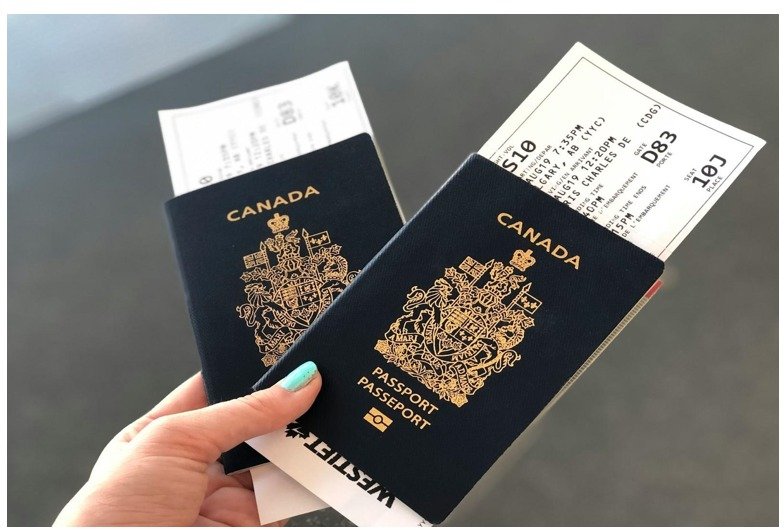Study Abroad Consultants In Delhi
- support@teachwell.co.in
- +91 93103 80899
- support@teachwell.co.in
- +91 93103 80899


Study in Germany: How to Apply for a German Student Visa
Many international students choose to study in Germany because of its world-class universities and diverse academic opportunities. But, like every other nation, Germany has its limitations about admission requirements.
Furthermore, to complete your degree program in Germany, you may require a German Student Visa, contingent upon your place of origin.
TeachWell’s team has diligently collected all the essential details and requirements for obtaining a student visa in Germany, along with the step-by-step application procedure.
Here are the details for international students currently studying or planning to study at German universities.

I would like to study in Germany: is a visa required?
Not all German students require a visa. For academic purposes, citizens of the following countries are permitted entry into Germany without a visa:
- EU/EEA nationals
- Canada, Brazil, Andorra, and Argentina
- Israel, Japan, El Salvador, Honduras
- Monaco
- Original New Zealand
- San Marino
- Switzerland
- Americas Korea
- New Zealand, Australia USA, UK, Korea.
To Study in Germany, you must obtain a visa if your country is not on the following list. But worry not—this post contains all the information you require.
Natives of the mentioned countries must register with the local population registration office in Germany within two weeks of their arrival.
Andorra, Brazil, El Salvador, Honduras, Monaco, and San Marino residents need a visa to work during or after their studies.
What type of visa is needed to study in Germany?
To enter Germany, you will require a different type of visa depending on why you are visiting. If you are planning to stay for a long time and your purpose is education, you cannot use the Short-term/Schengen visa (C Visa). However, it is crucial that you submit your application for a long-term visa, specifically the German National Visa (D Visa).
It takes a visa to receive language training: German courses could run for three months or a full year.
If you need a student visa, you must have a formal admission letter from the university you applied to. Its validity is originally set for three months, with the option to extend it to six months.
Passport for Students: This is an extended-stay visa if you have been accepted to a German university. Recall that it is essential to register for your residence permit at the Alien Registration Office in the German city you are residing in within two weeks of your arrival. These steps are crucial if you plan to study in Germany.
Which Meet the Requirements for a Study Permit in Germany?
The following conditions must be satisfied for you to be eligible for a German student visa:
- Application form & declaration (in accordance with Section 54 of the Residence Act) duly signed.
- Copy of your passport’s data page
- Birth certificate.
- Statement of purpose / Motivation letter
- Certificate issued by the APS (Academic Evaluation Centre)
- Proof of admittance to the study course/preparatory college
- Tuition fees receipt
- Certificates of all academic qualifications you have previously obtained
- English Proficiency Test(IELTS, PTE)
- Curriculum vitae
- Proof of financial means to cover the costs for the time of your studies
- Passport pictures according to biometric specifications, not older than 6 months
- Marriage certificate, if an applicant is married.
- Travel health insurance valid on arrival in Germany to the date of enrollment at the University
Proof of Financial Assets: You must meet the required financial requirements to be granted a German student visa. Whichever of the following applies to you, it should be in place:
Blocked bank account: German Embassies and Consulates around the world now accept Expatrio, an online banking solution that allows you to open a bank account even if you are prohibited from doing so.
A letter of declaration: By demonstrating this, your parents assure you that they will cover your living expenses during your visit.
A scholarship certificate: The award letter should clearly outline the intended use of the funds and confirm you as the recipient.
Meeting these financial requirements is a crucial step if you plan to study in Germany.
Proof of Admittance (any of the following could be considered):
- A university’s admission letter.
- Acceptance letter for introductory, preparatory, or language school in German.
- Transcripts from previous education.
- Curriculum vitae, or CV
- Inspirational Thought. Explain your future aspirations and the factors that led you to choose this degree program.
- Travel Health Insurance (from the date of departure until the enrollment date at the German university, about three months).
- Proof of payment for the visa application fee.
- Proof of proficiency in German. (For mixed-language or German programs).
- Proof of English fluency. (For mixed-language or English-language programming).
Kindly note German Consulates and Embassies may require additional documents or proof of certification.
In what way may I apply for a student visa to Germany?
The application process shouldn’t be too challenging provided all the paperwork is in place. That being said, you should arrive prepared.
Step List to Apply for a Student Visa to Germany
Visit the German consulate or embassy in your nation: Find the German Embassy in the nation where you plan to submit your application. Go there, make an appointment, and inquire about further information regarding the application procedure.
If your country doesn’t have a German Embassy, you can go to a German Embassy or Consulate in a neighboring country. You can also use a visa application center authorized by the German government.
Examine all the necessary documentation: Check that you have all the necessary paperwork before they leave for the scheduled time. Visit the German embassy’s official websites for further information on the specific documentation needs for your nation.
Get ready for the interview for a visa: You should research typical interview questions online to make sure you are well-prepared for the German student visa interview. When you attend the interview, you need also to bring the documentation proving you paid the visa application fee.

Duration of the application process for a German student visa
The application process could occasionally take up to 25 days to complete. But the nation from which you are applying and the German Embassy also matter. The longest processing time is three months; however, it can take up to six or twelve weeks in certain cases.
When Should I Apply for a Student Visa for Germany?
You should apply for your student visa as soon as possible. However, before anything else, you must become acquainted with the following German Embassy regulations:
Up until recently, you could apply up to three months before the day you planned to travel to Germany. Your application can be submitted up to six months in advance for a trip that departs.
Take advantage of the time available to apply promptly as there may be limited interview slots left, and you wouldn’t want to miss out on your holiday.
Price of a German Student Visa
A German student visa applicant must have funds in their bank account totaling €75. We do not accept credit cards. The money order must be more than two months old and must be sent from the German Embassy or Consulate in your home country.
But remember that if your visa is denied, you will not be paid.
Why do I have to apply for a visa as a student?
To lessen the likelihood of missing the start of the semester, apply for a German student visa. Getting a visa appointment takes a long time, in addition to the time it takes for processing. It can take over three months from starting your visa application to receiving the visa.
Germany’s student visa application processing time
It may take four to twelve weeks for the German student applicant visa to be processed. The range is important because it affects the processing time of your student visa application by the German Consulates and Embassies in your area.
Put another way, there isn’t a universally applicable processing period for student visa applications. Processing times for visa applications can be lengthy, typically taking two to three months, the same as for Nigeria, Colombia, India, and other countries.
Bottom Line
Obtaining a student visa for study in Germany is an important step towards earning a university degree in one of Europe’s leading academic regions. You can achieve your academic goals if you plan and follow the necessary procedures, even though the process may seem complicated.
If you encounter challenges or require further guidance, do not hesitate to reach out to TeachWell for the most accurate and precise information that will address all of your inquiries. We are here to serve you!
FAQ Regarding Student Visas in Germany
Q1. What does one need to apply for a student visa to enter Germany?
Study of language classes that aren’t academic. A course lasting three to twelve months with a minimum of eighteen hours of training per week. Preparing you for advanced coursework cannot be the course’s objective.
Q2. Do you need German language classes before academic work?
You need to complete a preparatory course before you can take any of these approved tests to be officially admitted to study at the institution.
Q3. What studies lead to university degrees?
You should have received the official admission confirmation for your study from one of these accredited institutions of higher learning. This is relevant if you’re pursuing a formal higher education degree such as a Ph.D., Master’s, or Bachelor’s (e.g., BA, B.Sc., B.Eng.).